Contents
| |||||
| Decades: | |||||
|---|---|---|---|---|---|
| See also: | Other events of 1879 List of years in Argentina | ||||
Events in the year 1879 in Argentina.
| |||||
| Decades: | |||||
|---|---|---|---|---|---|
| See also: | Other events of 1879 List of years in Argentina | ||||
Events in the year 1879 in Argentina.
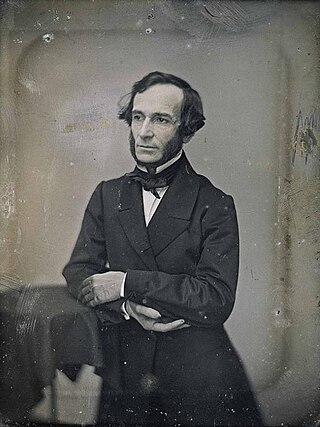
Juan Bautista Alberdi was an Argentine political theorist and diplomat. Although he lived most of his life in exile in Montevideo, Uruguay and in Chile, he influenced the content of the Constitution of Argentina of 1853.
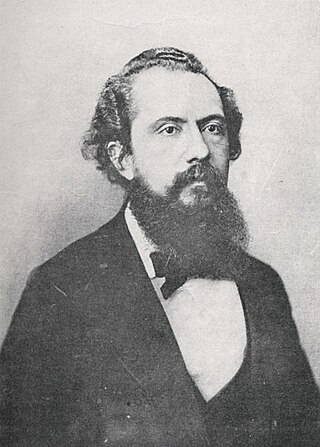
Nicolás Remigio Aurelio Avellaneda Silva was an Argentine politician and journalist, and President of Argentina from 1874 to 1880. Avellaneda's main projects while in office were banking and education reform, leading to Argentina's economic growth. The most important events of his government were the Conquest of the Desert and the transformation of the Buenos Aires into a federal district.

Alejo Julio Argentino Roca Paz was an army general and statesman who served as President of Argentina from 1880 to 1886 and from 1898 to 1904. Roca is the most important representative of the Generation of '80 and is known for directing the Conquest of the Desert, a series of military campaigns against the indigenous peoples of Patagonia sometimes considered a genocide.
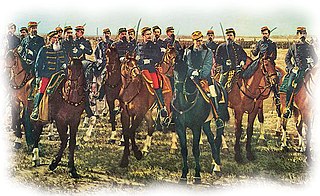
The Conquest of the Desert was an Argentine military campaign directed mainly by General Julio Argentino Roca during the 1870s and 1880s with the intention of establishing dominance over Patagonia, inhabited primarily by indigenous peoples. The Conquest of the Desert extended Argentine territories into Patagonia and ended Chilean expansion in the region.

The following is an alphabetical list of topics related to the Argentina.

Gaucho literature, also known as gauchesco ("gauchoesque") genre was a literary movement purporting to use the language of the gauchos, comparable to the American cowboy, and reflecting their mentality. Although earlier works have been identified as gauchoesque, the movement particularly thrived from the 1870s to 1920s in Argentina, Uruguay and southern Brazil after which the movement petered out, although some works continued to be written. Gauchoesque works continue to be read and studied as a significant part of Argentine literary history.
The Argentine Revolution of 1905 also known as the Radical Revolution of 1905 was a civil-military uprising organized by the Radical Civic Union and headed by Hipólito Yrigoyen against the oligarchic dominance known as the Roquismo led by Julio Argentino Roca and his National Autonomist Party.
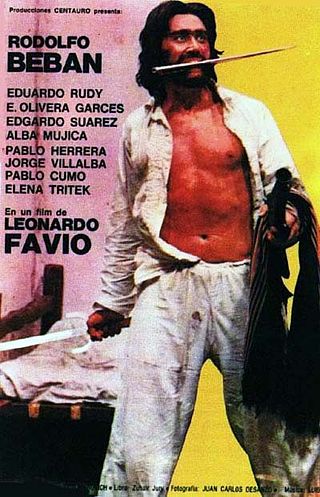
Juan Moreira is a 1973 Argentine dramatic historical film directed by Leonardo Favio and starring Rodolfo Bebán. It is based on the homonymous novel by Eduardo Gutiérrez, which narrates the life of the famous Argentine outlaw, gaucho and folk hero Juan Moreira.

Eduardo Wilde was an Argentine physician, politician, and writer, and among the most prominent intellectual figures of the modernizing Generation of '80 in Argentina.
Events from the year 1942 in Argentina
Events from the year 1925 in Argentina

Cayetano Descalzi (1809–1886) was an Italian painter and engraver who came to the Río de la Plata, now Argentina, in the 1820s.

Estanislao Severo Zeballos was an Argentine lawyer and politician who was Minister of Foreign Affairs of his country three times. He was one of the most prominent intellectuals and politicians of his time. He wrote on a broad range of subjects in books and periodicals, including Catholicism, history, ethnography and geography.
Events in the year 1881 in Argentina.
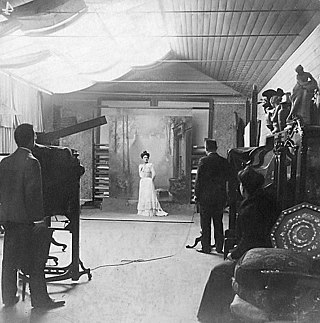
Events in the year 1880 in Argentina.
Events in the year 1934 in Argentina.
Events in the year 1886 in Argentina.
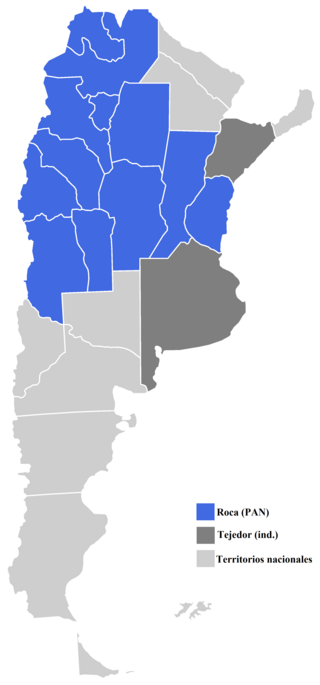
The Argentine presidential election of 1880 was held on 11 April to choose the president of Argentina. Julio Argentino Roca was elected president.
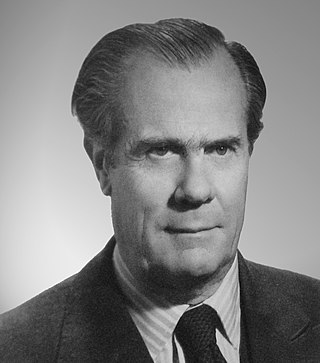
Eduardo Alejandro Roca was an Argentine lawyer, academic, and diplomat. He was Ambassador of Argentina to the United States (1968–1970) and was appointed as a permanent representative to the United Nations during the 1982 Falklands War.